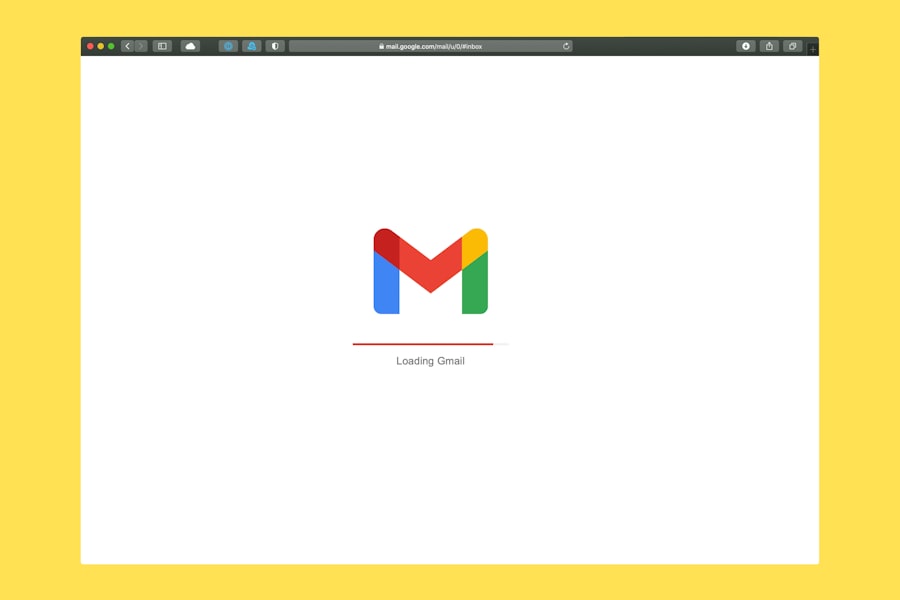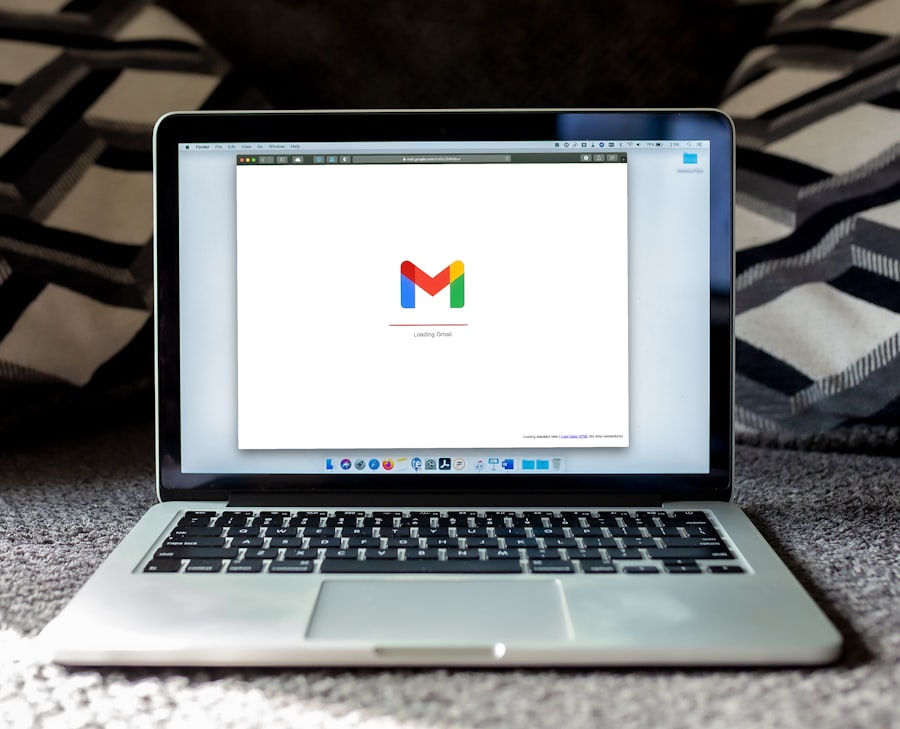Follow-up on job applications can significantly influence the hiring process. Candidates who take the initiative to follow up after submitting an application demonstrate enthusiasm and interest in the position, potentially setting themselves apart from other applicants and leaving a positive impression on employers. This proactive approach can keep the candidate’s application at the forefront of the hiring manager’s mind, increasing the likelihood of consideration for the position.
In some instances, following up may prompt employers to expedite the review process, leading to quicker responses and faster hiring decisions. Following up also provides an opportunity for candidates to address any questions or concerns employers may have about their application. This can be particularly beneficial for clarifying gaps in experience or qualifications.
By initiating follow-up communication, candidates demonstrate their willingness to engage in open and transparent dialogue, which can help build trust and rapport with potential employers. Moreover, following up on job applications can help candidates stay engaged and motivated throughout the hiring process. It allows them to take an active role in their job search, maintaining a sense of control and potentially boosting confidence.
This proactive approach can also provide valuable feedback and insights that can be used to improve future applications and interviews. By remaining engaged and proactive, candidates can enhance their chances of securing desired job opportunities.
Key Takeaways
- Following up on job applications can increase the chances of getting noticed by employers and landing an interview.
- It demonstrates professionalism and persistence, showing employers that you are serious about the position.
- Following up can help build relationships with employers and leave a positive impression for future opportunities.
- It can help you stand out among other applicants and show that you are proactive and enthusiastic about the position.
- Following up can also help in receiving valuable feedback and updates on the status of your application.
How Follow-Up Demonstrates Professionalism and Persistence
Demonstrating a Strong Work Ethic
Additionally, follow-up demonstrates a strong work ethic and a commitment to achieving goals, qualities that are highly valued in the workplace. Moreover, follow-up in job applications also showcases a candidate’s persistence and determination. In today’s competitive job market, employers are inundated with numerous applications for each open position.
Standing Out from the Competition
By following up, candidates can ensure that their application does not get lost in the shuffle and that they remain at the forefront of the employer’s mind. This persistence can be a key differentiator for candidates, as it shows that they are willing to put in the effort to pursue opportunities and are not easily discouraged by setbacks or rejections. Employers are more likely to take notice of candidates who demonstrate this level of determination and commitment.
Showcasing Communication Skills
Furthermore, follow-up can also be an opportunity for candidates to showcase their communication skills and professionalism. The way in which candidates follow up, whether it be through email, phone call, or in-person visit, can provide insight into their ability to communicate effectively and professionally. This can be particularly important for roles that require strong interpersonal skills or client-facing responsibilities. By demonstrating clear and respectful communication in their follow-up efforts, candidates can further differentiate themselves as strong potential hires.
The Role of Follow-Up in Building Relationships with Employers

Follow-up plays a crucial role in building relationships with employers throughout the job application process. When candidates take the initiative to follow up after submitting an application, they are not only expressing their interest in the position but also opening the door for ongoing communication with the employer. This can help to establish a rapport and build a connection with the hiring manager or recruiter, which can be beneficial for future opportunities within the organization.
Additionally, follow-up provides an opportunity for candidates to showcase their knowledge of the company and industry, as well as their enthusiasm for the role. By engaging in meaningful conversations with employers during follow-up, candidates can demonstrate their understanding of the company’s values, mission, and goals, as well as their alignment with these aspects. This can help to create a sense of shared purpose and connection with the employer, which is essential for building strong relationships.
Moreover, follow-up can also be a way for candidates to express their gratitude for being considered for the position and to convey their enthusiasm for the opportunity. This level of appreciation and enthusiasm can leave a lasting impression on employers and contribute to a positive perception of the candidate. Building a positive relationship with employers through follow-up can also lead to potential referrals or recommendations for other opportunities within the industry or organization.
In conclusion, follow-up is not only about expressing interest in a specific job opportunity but also about laying the groundwork for future professional relationships. By taking the time to follow up after submitting an application, candidates can demonstrate their commitment to building meaningful connections with employers and positioning themselves as valuable assets to the organization.
The Influence of Follow-Up on Standing Out Among Other Applicants
Follow-up on job applications can have a significant influence on a candidate’s ability to stand out among other applicants. In today’s competitive job market, employers are often inundated with numerous applications for each open position. As a result, it can be challenging for candidates to capture the attention of hiring managers and differentiate themselves from the competition.
However, by following up after submitting an application, candidates can increase their visibility and make a memorable impression on employers. Furthermore, follow-up provides an opportunity for candidates to reiterate their interest in the position and highlight their qualifications and experience. This additional communication can serve as a reminder to employers of the candidate’s strengths and suitability for the role, especially if there are specific skills or experiences that make them stand out from other applicants.
By effectively articulating their value proposition during follow-up, candidates can increase their chances of being considered for an interview and ultimately securing the job. Moreover, follow-up can also be a way for candidates to address any concerns or questions that employers may have about their application. This proactive approach demonstrates a willingness to engage in open and transparent communication and can help to alleviate any doubts or reservations that employers may have about the candidate’s fit for the role.
By taking the initiative to clarify any potential issues during follow-up, candidates can position themselves as proactive problem-solvers and further distinguish themselves from other applicants. In conclusion, follow-up is a powerful tool for candidates to stand out among other applicants by increasing their visibility, reiterating their interest and qualifications, and addressing any potential concerns or questions from employers. By leveraging follow-up effectively, candidates can significantly enhance their chances of being noticed and considered for job opportunities.
The Benefits of Following Up in Receiving Feedback and Updates
Following up on job applications offers numerous benefits in terms of receiving feedback and updates from employers throughout the hiring process. In many cases, employers may not have the capacity to provide individualized feedback to every applicant due to the high volume of applications they receive. However, by following up after submitting an application, candidates can express their interest in receiving feedback and demonstrate their commitment to continuous improvement.
Furthermore, follow-up provides an opportunity for candidates to gain valuable insights into areas for improvement in their application or interview skills. By engaging in open and constructive dialogue with employers during follow-up, candidates can receive feedback on their strengths and weaknesses as well as specific areas where they can enhance their qualifications or experiences. This feedback can be instrumental in guiding candidates’ professional development and improving their future job applications and interviews.
Moreover, following up on job applications can also help candidates stay informed about the status of their application and any updates regarding the hiring process. This level of transparency and communication from employers can provide peace of mind to candidates who may be anxiously awaiting news about their application. Additionally, staying informed about the progress of their application can help candidates manage their expectations and make informed decisions about their job search strategy.
In conclusion, following up on job applications offers significant benefits in terms of receiving feedback and updates from employers, including gaining valuable insights into areas for improvement and staying informed about the status of their application. By actively seeking feedback and updates through follow-up efforts, candidates can demonstrate their commitment to continuous learning and improvement while also staying engaged in the hiring process.
The Importance of Timing and Etiquette in Follow-Up Communication

Striking the Right Balance
The timing and etiquette of follow-up communication in job applications are crucial factors that can significantly impact its effectiveness. It is essential for candidates to strike a balance between being proactive and respectful when following up after submitting an application. Following up too soon may come across as overly eager or impatient, while waiting too long may result in missed opportunities or being forgotten among other applicants.
Understanding Employer Preferences
Furthermore, it is vital for candidates to consider the preferred communication method of the employer when following up. Some employers may prefer email communication, while others may appreciate a phone call or even an in-person visit. Understanding and respecting these preferences demonstrates attentiveness and consideration on the part of the candidate.
Professionalism and Attention to Detail
Additionally, using professional language and tone in follow-up communication is essential for creating a positive impression on employers. Moreover, it is important for candidates to be mindful of any specific instructions provided by employers regarding follow-up after submitting an application. Some job postings may explicitly state whether or not follow-up is encouraged or provide specific guidelines for doing so. Adhering to these instructions demonstrates respect for the employer’s preferences and attention to detail on the part of the candidate.
Tips for Effective Follow-Up in Job Applications
Effective follow-up in job applications requires careful planning and execution to maximize its impact on employers. One key tip is to personalize follow-up communication based on each specific job application rather than using generic templates or messages. Tailoring follow-up messages to reflect genuine interest in the position and alignment with the company’s values demonstrates authenticity and attention to detail.
Furthermore, it is important for candidates to be persistent but not pushy when following up after submitting an application. Following up multiple times within a short period or using aggressive language may come across as overly assertive or even off-putting to employers. Instead, candidates should aim for a balance between staying top-of-mind with employers while respecting their time and boundaries.
Moreover, it is beneficial for candidates to use follow-up as an opportunity to provide additional value or insights that were not included in their initial application. This could include sharing relevant work samples or projects that showcase their skills or offering new perspectives on how they could contribute to the company’s success. By adding value through follow-up communication, candidates can further differentiate themselves from other applicants.
In conclusion, effective follow-up in job applications involves personalizing communication, being persistent but not pushy, and providing additional value through insights or work samples. By implementing these tips into their follow-up strategy, candidates can increase their chances of making a positive impression on employers and standing out among other applicants.
If you’re looking to build a professional network from scratch, check out this insightful article on Building a Professional Network from Scratch. Networking is a crucial aspect of job hunting, and this article provides valuable tips and strategies for connecting with industry professionals and expanding your opportunities. By following up on job applications and nurturing your professional network, you can increase your chances of landing your dream job.
FAQs
What is follow-up in job applications?
Follow-up in job applications refers to the act of reaching out to a potential employer after submitting a job application. This can be done through email, phone call, or in-person visit to express continued interest in the position and to inquire about the status of the application.
Why is follow-up important in job applications?
Follow-up is important in job applications because it demonstrates your enthusiasm and commitment to the position. It also allows you to stand out from other applicants and gives you the opportunity to reiterate your qualifications and interest in the role.
When should I follow up after submitting a job application?
It is generally recommended to follow up within one to two weeks after submitting a job application. This allows the employer enough time to review the applications while also showing your proactive approach to the position.
How should I follow up after submitting a job application?
You can follow up after submitting a job application by sending a polite and professional email expressing your continued interest in the position and inquiring about the status of your application. If you have the contact information of the hiring manager, you can also follow up with a phone call or in-person visit.
What should I include in a follow-up email after submitting a job application?
In a follow-up email after submitting a job application, you should express your gratitude for the opportunity to apply, reiterate your interest in the position, and inquire about the status of your application. You can also use this opportunity to briefly highlight your qualifications and why you are a good fit for the role.



